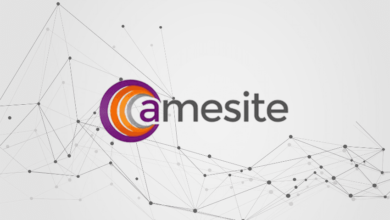9 policies companies should implement to reduce burnout, according to employees


Survey Highlights:
- The majority (82%) of employees say they at least sometimes feel burned out in their professional role, with a quarter (25%) saying they feel this way often or always.
- At organizations with all nine of the American Heart Association’s recommended policies in place, 91% of employees report positive workplace well-being, as compared to only 51% in organizations with none of the policies in place.
- Implementing changes to workplace policies and culture, even incrementally, can help improve employee well-being and reduce burnout.


The World Health Organization defines burnout as a workplace mental health phenomenon resulting from chronic, unmanaged workplace stress that is characterized by feelings of exhaustion, disengagement and negativity related to one’s job, and reduced professional performance.[1]
“Chronic exposure to stress can increase your lifetime risk of conditions like heart disease and stroke and is also linked to anxiety disorders and major depression. With burnout rates continuing to rise, we must acknowledge that this is not a passing problem, but a serious and ongoing workforce mental health challenge,” shared Eduardo J. Sanchez, M.D., M.P.H., FAHA, chief medical officer for prevention at the American Heart Association. “This survey gives a reassuring glance at how employers can make a positive impact on the mental health and well-being of their workforce with a few intentional changes.”
Employees are not the only ones paying the price for burnout. Excessive workplace stress can result in up to an estimated $190 billion in health care costs each year and is linked with higher absenteeism and job dissatisfaction.[2],[3] Research shows that employers can help mitigate these costs and support better business outcomes by championing employee well-being. A 2019 study found that the stock prices of organizations that prioritized employee health and safety appreciated by 115% over four years, outperforming the S&P 500 (+69%) and companies with lower reported internal health support (+44%).[4]
The survey of 5,055 U.S. working adults was conducted by The Harris Poll on behalf of the American Heart Association, with the aim of understanding how employees are impacted by nine evidence-based best practices to combat burnout and promote employee mental health. Despite positive measures of workforce well-being, more than three quarters (82%) of respondents reported experiencing burnout at least sometimes, with parents, frontline or essential workers, women, younger workers (Generation Z and millennials) and LGBTQIA+ workers particularly likely to report feeling burned out often or always.
What can employers do to help?
All nine policies analyzed in the survey were found to be associated with increased workplace well-being as reported by employees, and seven were also associated with decreased burnout:
- Assess alignment between skillset and job tasks
- Establish clear roles and responsibilities
- Regularly assess workloads
- Design job roles with employee input
- Establish a training path to develop employee skills
- Assess if employees feel supported to lead a healthy life
- Promote overall employee well-being
- Discourage work-related technology use after hours
- Promote employee support (resource) groups
In companies with none of these policies in place, only 51% of employees reported positive workplace well-being, as compared to 91% of employees in companies with all nine policies in place. Notably, even the implementation of one of these policies made employees more likely to be satisfied with their benefits, have positive feelings about their current role and job responsibilities, and report feeling supported by their manager.
The American Heart Association’s Workforce Well-being Scorecard™ offers employers a comprehensive assessment of their culture of health and well-being based on leading best practices, including policies to support mental health and combat burnout. Visit heart.org/workforce to view the full survey report and complete the Scorecard.
Survey Methodology
The research was conducted online in the United States by The Harris Poll on behalf of the American Heart Association among 5,055 US adults aged 18+ who are employed full time or part time. The survey was conducted between April 13 and May 10, 2023. Data are weighted separately by race/ethnicity and where necessary by education, age by sex, region, household income, size of household, marital status, work status, and propensity to be online to bring them in line with their actual proportions in the population. The groups were then combined into a proportional total by race/ethnicity.
Respondents for this survey were selected from among those who have agreed to participate in our surveys. The sampling precision of Harris online polls is measured by using a Bayesian credible interval. For this study, the sample data is accurate to within + 1.9 percentage points using a 95% confidence level. This credible interval will be wider among subsets of the surveyed population of interest. All sample surveys and polls, whether or not they use probability sampling, are subject to other multiple sources of error which are most often not possible to quantify or estimate, including, but not limited to coverage error, error associated with nonresponse, error associated with question wording and response options, and post-survey weighting and adjustments.
Additional Resources:
###
About the American Heart Association
The American Heart Association is a relentless force for a world of longer, healthier lives. We are dedicated to ensuring equitable health in all communities. Through collaboration with numerous organizations, and powered by millions of volunteers, we fund innovative research, advocate for the public’s health and share lifesaving resources. The Dallas-based organization has been a leading source of health information for nearly a century. Connect with us on heart.org, Facebook, X or by calling 1-800-AHA-USA1.
For Media Inquiries:
Hannah Stebenné:
For Public Inquiries: 1-800-AHA-USA1 (242-8721)
heart.org and stroke.org
[2] Goh, Joel, et al. “The Relationship Between Workplace Stressors and Mortality and Health Costs in the United States.” Management Science, vol. 62, no. 2, Institute for Operations Research and the Management Sciences, Feb. 2016, pp. 608–28. https://doi.org/10.1287/mnsc.2014.2115.
[3] “Physical, Psychological and Occupational Consequences of Job Burnout: A Systematic Review of Prospective Studies.” PLOS ONE, vol. 12, no. 10, Public Library of Science, Oct. 2017, p. e0185781. https://doi.org/10.1371/journal.pone.0185781.
[4] Goetzel, Ron Z., et al. “The Stock Performance of American Companies Investing in a Culture of Health.” American Journal of Health Promotion, vol. 33, no. 3, SAGE Publishing, Jan. 2019, pp. 439–47. https://doi.org/10.1177/0890117118824818.




